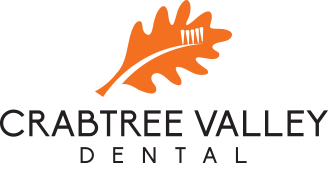Temporomandibular Joint (TMJ) is a hinge-like joint on each side of your face that connects your upper and lower jawbones. These complex joints allow you to not only open and close but also move your jaw side to side, forwards and backwards so you can talk, chew, and yawn.
People can develop problems with one or both temporomandibular joints, the muscles that support and aid with the movement of the joints, or both. When this discomfort occurs, it is called Temporomandibular Disorder (TMD) or temporomandibular joint dysfunction. Patients experience pain and difficulty moving their jaw and can experience headaches from TMJ pain.
TMD can happen for a number of reasons, including but not limited to:
- • Arthritis in the joints
- • Deterioration of the disc in the joint
- • Grinding or clenching your teeth
- • Stress causing tightening of the facial muscles
- • Excessive chewing gum or crunching on hard objects
TMD symptoms can be temporary or last years. Other conditions such as tooth decay, sinus trouble, or gum disease can cause similar symptoms. It is important to see your dentist for an accurate diagnosis so you can receive proper TMJ disorder treatment.
Symptoms related to TMJ disorders may include:
- • Tiredness or soreness of muscles in your face
- • Clicking/popping/grinding in the joints
- • TMJ Headaches
- • Neck pain when biting or chewing food
- • Signs of wear on your teeth
- • Broken teeth
- • Difficulty opening or closing your jaw (locked jaw)
If you develop any of the symptoms listed above, it is important to see your dentist to pinpoint the source of your symptoms. During your dental visit, the dentist will complete an exam, ask questions about symptoms, and may take x-rays of your temporomandibular joints. This information will help the dentist provide the best course of treatment for you or refer you to a specialist.
TMJ disorder treatment options may include:
- • Oral splint or night guard which is an appliance you wear over your teeth to keep your joints from over compression
- • Physical therapy
- • Over-the-counter pain relievers, anti-inflammatory drugs, or muscle relaxers
- • When other treatment options have not relieved your symptoms, surgery may be suggested.
- • At-home care used in combination with one of the treatment options above. Recommendations can include use of hot/cold compresses, eating soft foods, massaging facial muscles and joints, or reducing stress.
It is important to take care of yourself and address symptoms with a TMJ disorder specialist as they arise. One way to combat problems is through regular dental care and finding a dentist to be a part of your care team. If you do not have a dentist or are experiencing discomfort, schedule an appointment with us at 919-985-7300!

